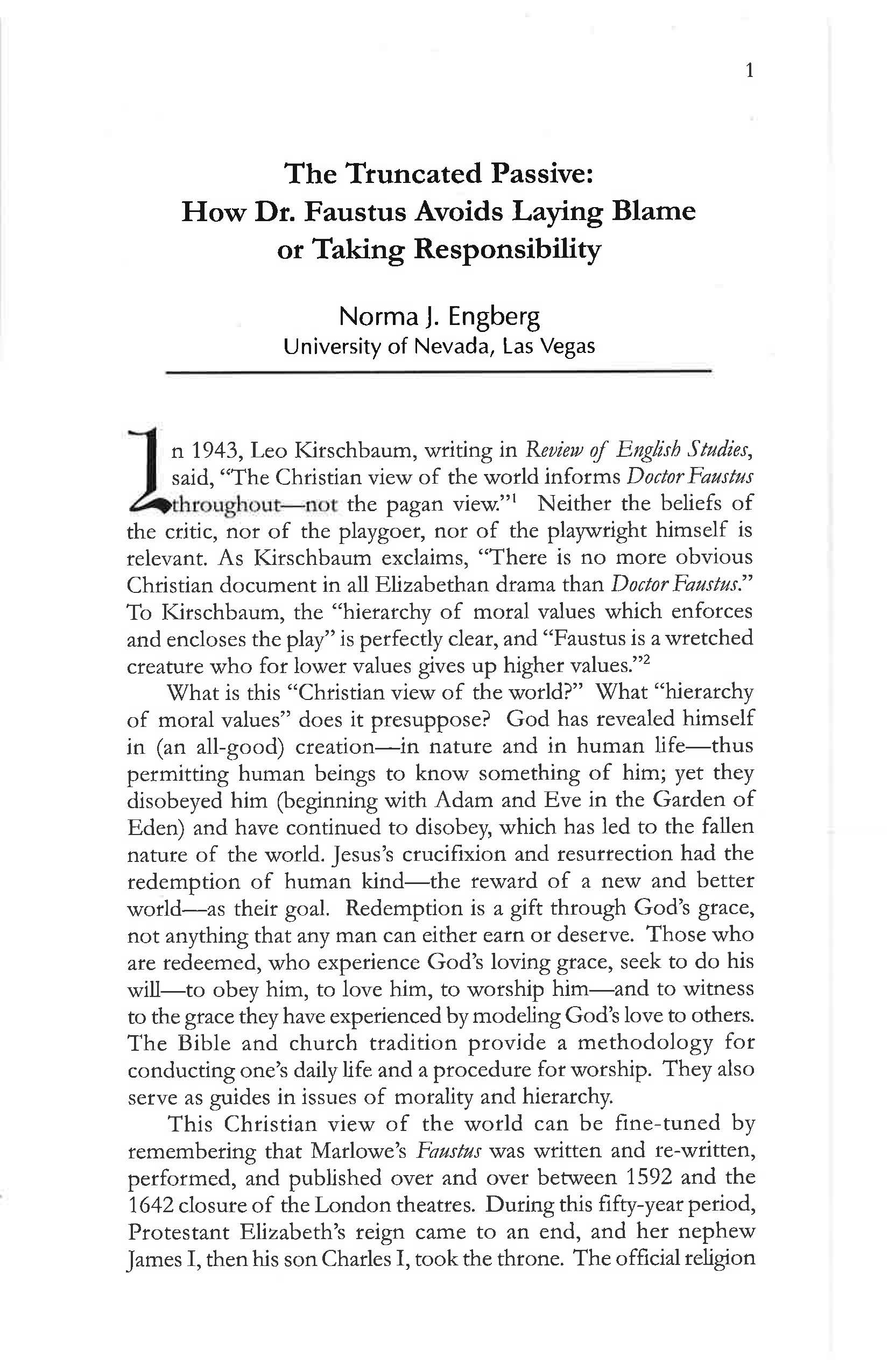The Truncated Passive: How Dr. Faustus Avoids Laying Blame or Taking Responsibility
Main Article Content
Abstract
In 1943, Leo Kirschbaum, writing in Review of English Studies, said, “The Christian view of the world informs Doctor Faustus throughout—not the pagan view.”1 Neither the beliefs of the critic, nor of the playgoer, nor of the playwright himself is relevant. As Kirschbaum exclaims, “There is no more obvious Christian document in all Elizabethan drama than Doctor Faustus.” To Kirschbaum, the “Hierarchy of moral values which enforces and encloses the play” is perfectly clear, and “Faustus is a wretched creature who for lower values gives up higher values.”2
Article Details
Section
Articles
